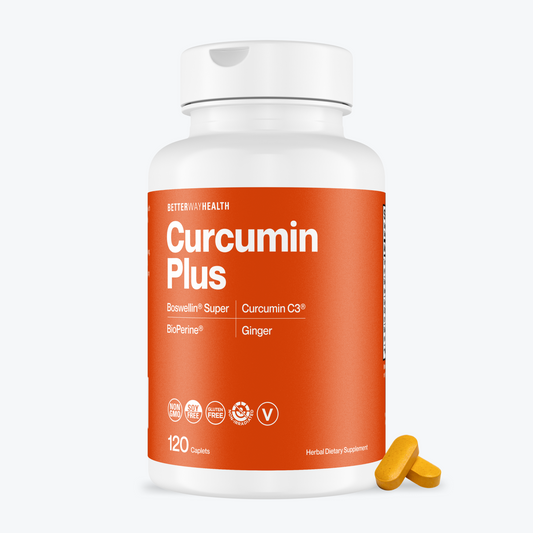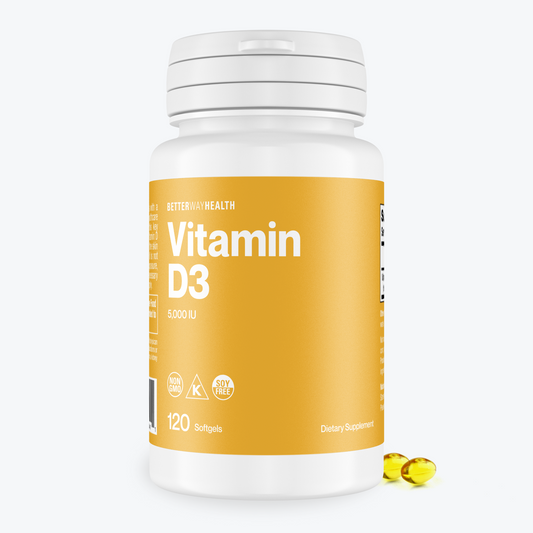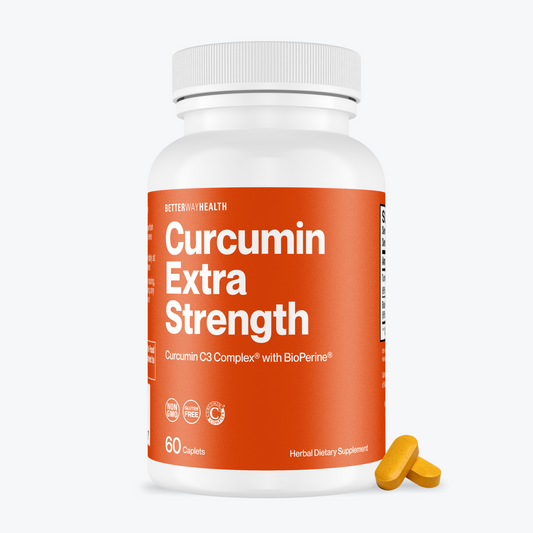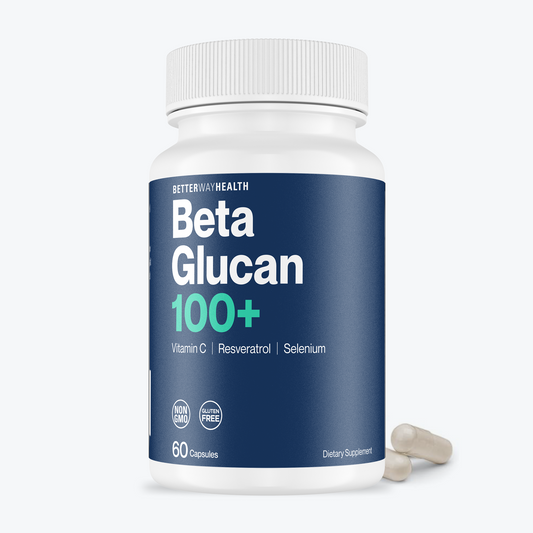Seasonal Allergies and How to Remedy Them Naturally

The changing of the seasons is usually a time for newfound celebration. It promises a fresh start, a welcomed change in weather, and exciting holidays and festivities to come.
But it also brings seasonal allergies (more clinically known as “allergic rhinitis”), which affect upwards of 60 million people per year in the United States, according to the CDC (1). And it’s not just for spring or fall – allergens can appear year-round.
Season length and symptoms vary each year depending on the weather and where you live. So let’s dive into the details of each season so you get a handle on how to remedy this nuisance of an ailment.
Let’s explore common allergy seasons, popular herbal remedies, and effective allergy treatments.
What Are Seasonal Allergies?
Allergies are your body’s reaction to foreign substances it considers an “invader.” These invaders, commonly known as allergens (such as pollen, for example), spark your immune system—your body’s natural defense system—to put up its guard and defend against them.
To do this, your body releases a chemical called histamines (along with leukotrienes and prostaglandins).
Histamines are chemical compounds naturally produced by the body as part of the immune response. They play a role in various physiological processes and are involved in allergic reactions, inflammation, and regulating stomach acid secretion. (2)

What Are Common Seasonal Allergy Symptoms?
- Coughing
- Congestion
- Sneezing
- Itchy eyes, nose, and throat
- Runny nose
- Watery eyes
- Post-nasal drip (drainage in the throat)
- Fatigue
- Sinus issues
It’s important to note that seasonal allergies are different from what’s known as perennial allergies—such as dust mites and cat hair—which can affect you all year long. But both can be equally as annoying.
Allergies are your body’s reaction to foreign substances it considers an “invader.”
Types of Allergies That Can Occur
Within the umbrella category of allergies, there are many variations of allergic responses. Just as the body reacts in specific ways to certain viruses or bacteria, allergens trigger specific responses as well.
Here are common allergies and examples of allergic responses:
Seasonal
- Grass pollen
- Tree pollen
- Mold
- Ragweed
Nasal
- Wood dust
- Mold
- Dog or cat fur
- House dust mites
Topical (skin)
- Nickel (found in certain jewelry or belt buckles)
- Fragrances
- Latex
- Poison ivy
Food
- Eggs
- Peanuts
- Walnuts
- Cashews
- Pecan nuts
- Dairy
Within each type of allergy, there is the potential for a less severe form, called sensitivity or intolerance, which engages the immune system and produces negative effects in the body, but not as extensively as an allergy. Reactions can range from minor irritation to life-threatening danger. Minor hives are uncomfortable and unpleasant, but anaphylactic reactions can close the airways, create shock, and be fatal if not treated immediately.
An allergy that poses a less severe reaction should not be taken any less seriously—any time the body is functioning less efficiently should be a cause for concern and a reason to address the problem.
Types of Seasonal Allergies
Here is an example of the most common allergens experienced through different seasons.
Tree pollen – March/April

Grass pollen - June/July

Ragweed - Fall

Mold - Fall

Fall Allergies
With the crisp air and colorful gourds abound, fall tends to feel like a fresh start. The kids are back at school, and businesses are in full swing, planning for the promise of the holidays to come. But that momentum can come to a halt when fall allergies come into play.
Ragweed pollen is one of the most common culprits for seasonal allergies in the fall. This weed starts pollinating around late summer through early to mid-fall, depending on the weather. Ragweed can grow just about anywhere – and even if it isn’t in your area, its pollen travels (3) hundreds of miles through the air when riding the wind.
This is also when the dreaded hay fever begins to strike, usually peaking between late March and September, especially when it's warm, humid, and windy (4).
During this season, you may also encounter mold that develops in wet leaves and soil. Lastly, be mindful that as the weather cools, turning on the heating can stir up dust mites into the air.

Winter Allergies
As the weather reaches its lowest temperatures of the year, we can finally say goodbye to outdoor pollen and many plant allergies. However, as we move indoors more often, year-round, or “perennial” allergies can rear their ugly head. These indoor allergies include mold, dust mites, pet dander, and even your Christmas tree (5).
But before you go throwing out your beautiful Douglas Fir, there are a few things you can do before bringing it into the house:
- Shake the tree down to get rid of dust mites
- Hose down live trees with water to remove mold spores
- Use a mask when retrieving ornaments and décor from storage to protect yourself from dust
Spring Allergies
Trees begin to blossom, layers of clothing go into storage, and sunshine greets us in the early mornings again. What feels like a fresh start also triggers one of the biggest outdoor allergies—tree pollen! This infamous allergen is intensified by the spring breeze, as the wind carries the pollen through the air.
Cedar trees can release pollen as early as January in the South, but most other people won’t feel its effects until February, with March and April being peak months thanks to trees such as willow, pine, and mulberry.
Other allergens such as grass and weed pollen can also trigger unwanted allergy symptoms as early as March.
Summer Allergies
When summertime rolls around, everyone wants to enjoy it worry-free—without allergy flare-ups. The hot weather is perfect for swimming, camping, and outdoor entertainment, but the humidity also creates an ideal environment for mold, which can trigger allergies.
From July through early fall, many people may experience allergy symptoms related to fungus spores growing on grass, grains, or outdoor logs. Additionally, many plants are still pollinating during the summer. The most common allergy trigger this time of year is grass pollen.
Who Can Experience Allergies?
Allergies have become the fifth most common chronic illness in the country that often requires allergy medications. In the US, 30% of adults and 40% of children suffer from some kind of allergy (6). As the immune system itself is still shrouded in some mystery and intrigue, the cause and mechanics of allergies are still relatively unknown.
Genetics do appear to play a role, but genetic predispositions aren’t a guarantee of anything. The environment and lifestyle that a person maintains can affect whether or not those genetic tendencies are carried out (7).
We do see that childhood is a precarious time for health influence—if you are going to develop allergies, it will likely begin in childhood. A review of allergic rhinitis (nasal allergies) showed peak occurrences falling in childhood (8).
While it’s not unheard of to develop allergies later in life, these observations underscore the importance of helping our children to be healthy from the start.

Mainstream Allergy Treatments
There are many ways to try to remedy unwanted allergies. The treatment you choose (or have recommended to you by a specialist) will depend on the type of allergy and the severity of the symptoms.
Mainstream treatments include:
- Anti-histamines: over-the-counter and prescription medications used to treat overall allergy symptoms
- Nasal sprays & decongestants: topical nasal antihistamines used to treat symptoms such as an itchy and/or runny nose
- Allergy shots: regular injections to stop or reduce allergy attacks
Potential Risks of Mainstream Allergy Treatments
The health benefits of allergy treatments are clear—you feel and function better. For some severe cases, that is enough to outweigh most potential risks and side effects. Since allergies are an immune response that produces histamines, antihistamines are medications that block the production and release of histamines in the body.
While over-the-counter and natural antihistamines are generally safe to use, they are well known for causing tiredness, sleepiness, fatigue, and even a cloudy mind. So while they are effective, the side effects can negatively affect your day.
Nasal sprays, while also effective, have been known to cause rebound congestion (8.1) when you stop taking the product. This is a sensation that makes you feel as though you need to continue taking it to maintain clear nasal passages.
When allergies progress to the point where immunotherapy via allergy shots is required, it’s easy to feel like little else can be done.
Still, being aware of the risks involved is important. Your healthcare provider should keep you in the room for 30-40 minutes after the injection to monitor you for a rare but possible anaphylactic reaction. Systemic reactions are also possible, with potential long-term effects (8.2).
Second- and third-generation antihistamines aren’t as strongly associated with severe side effects but are still a concern, as they are sometimes abused recreationally (8.3).
Natural Remedies for Seasonal Allergies
We have listed easy tips around foods, lifestyle, and natural supplements you can take to prevent allergies.
If none of those sound like viable options for you, fortunately, there are many quick and easy ways to rid yourself of pesky allergy symptoms through natural allergy treatment and home remedies.
These include
- In the summer: Take a shower and wash your hair after working or playing outdoors.
- In the spring and summer: Avoid outdoor activity in the early morning when pollen counts are highest.
- Wear protective clothing when mowing the lawn or gardening.
- Keep indoor allergies at bay by vacuuming frequently using a machine with a HEPA (high-efficiency particulate air) filter.
- Stay in tune with the pollen forecasts and current pollen levels. The American Academy of Allergy, Asthma & Immunology has an allergen tracker (9).
- Use HEPA filters in the air heating and air conditioning of your house and keep them well-maintained.
In addition to the remedies above, follow these additional steps for fighting allergies naturally.
Beta Glucan
Beta glucan is a natural compound found in plant sources. Glucan, specifically beta-1,3D glucan, has been associated with a range of health benefits. Cells in the immune system can recognize and respond to beta-1,3D glucan, leading to modifications in immune system responses.
In turn, the body will strengthen the immune system's response to beta glucan and can then increase the production of white blood cells. Beta glucan can be found in cereals such as oats and barley as well as certain types of mushrooms such as reishi, maitake, and shiitake.
Alternatively, using a quality natural supplement of beta glucan on a daily basis is a great way to get the exact amount your body needs.
Vitamin C
Taking vitamin C can help fight seasonal allergies. Healthcare practitioners suggest a minimum of 2,000 milligrams of vitamin C on a daily basis.
Alternatively, eat foods that are high in vitamin C, such as:
- Lemons
- Strawberries
- Papaya
- Oranges
- Brussels sprouts
Local Honey
Eating local honey every day can help your body get used to the pollen in your area and reduce allergy symptoms. Furthermore, honey has enzymes that can boost your immune system and provide relief from allergies.
Neti Pot
A neti pot is a unique container designed to rinse and clear mucus from your nasal passages. This form of treatment is part of what is called nasal irrigation.
Not only is a neti pot effective for nasal allergies, but it can also be used to combat sinus problems.
You can make your own saltwater solution to cleanse each nostril.
Eucalyptus Essential Oil
Eucalyptus oil is made from the oval-shaped leaves found on the eucalyptus tree. People who believe in natural remedies recommend using eucalyptus oil as an antimicrobial agent by adding it to every laundry load during allergy season.
Quercetin
Quercetin is an antioxidant that is believed to help stabilize the release of histamines and control allergy symptoms. It is also known to reduce proteins and inflammatory cells.
You can find it in foods like broccoli, cauliflower, green tea, and citrus fruits.
Probiotics
Probiotics are known as good bacteria that live in your gut and can protect you against infections, viruses, and allergies. Not only are probiotics being used to promote gut health, but they are also effective in natural allergy relief.
Natural Allergy Relief in Supplement Form
A natural supplement is an effective way to ensure that your body receives the correct amount of nutrients every day.
In addition to following general wellness and natural remedies to fight allergies, we suggest using a trusted natural supplement.
Beta Glucan for Natural Allergy Relief
This supplement uses beta glucan to beat allergy symptoms in a holistic way. In fact, it has been proven to reduce allergy symptoms caused by ragweed (10) (the biggest fall allergy) as well as cedar pollen (11) (a big spring culprit).
Beta glucan is a substance found in the fiber within the cell walls of yeast, bacteria, and other plants. Beta glucan helps support a healthy and robust immune system. And think about it: a strong immune system is going to be able to fight off allergic reactions on its own—without firing off histamines to do so (goodbye itchy eyes and runny nose!). Beta glucan is safe for both children (12) and adults.
While there’s no one perfect cure for allergies, there are plenty of natural ways to keep allergy symptoms at bay from spring to summer to fall to winter.
Still have questions?
Our ACES Team is always there to help.









